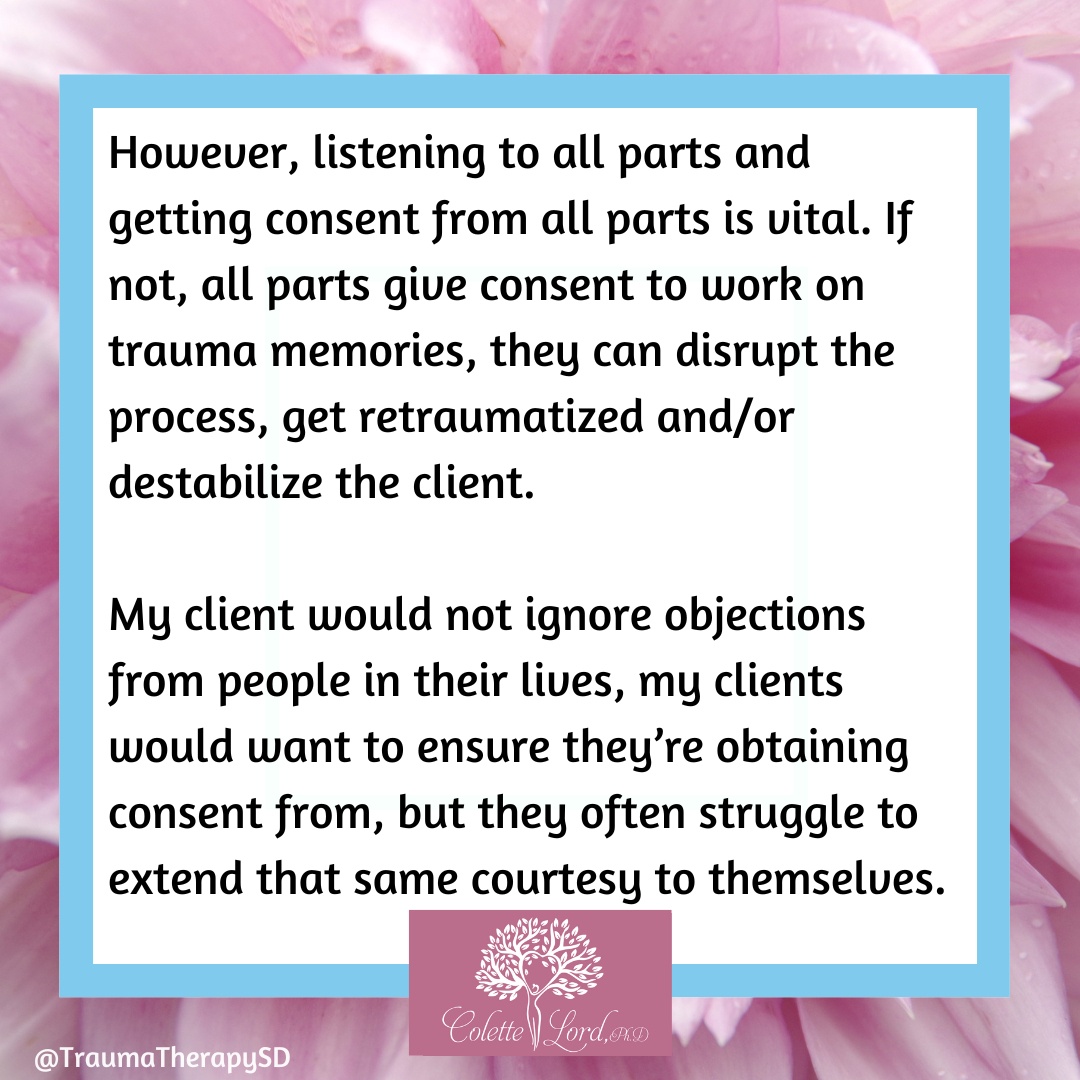Parts work – consent
As previously posted, these are the 5 C’s that guide my work with parts: curiosity, compassion, communication, consent and cooperation.
Today I want to talk about the element of consent.
Consent gets complicated when there are various parts of self with conflicting values, needs, and fears.
A common place this comes up is around wanting to get to working through the trauma. This can bring up conflict and ambivalence in anyone, and with parts this can be especially intense.
Some parts may really be wanting to get down to the work and it can be easy for them and therapists to want to push through and ignore any hesitations so that the healing can begin.
However, listening to all parts and getting consent from all parts is vital. If not, all parts give consent to work on trauma memories, they can disrupt the process, get retraumatized and/or destabilize the client.
Most of my client would never consider ignoring objections from people in their lives, most of my clients would want to ensure that they are obtaining consent from others before engaging in activities, but they often struggle to extend that same courtesy within the system.
Parts have good reasons for why they want to push through and ignore objections, and parts have good reasons for having those objections in the first place. And it is vital to get curious about the objections or hesitations. It is important to be compassionate about why parts have the perspectives they do. And is So, vital to get in communication with the parts to ensure consent is obtained for any intervention.














